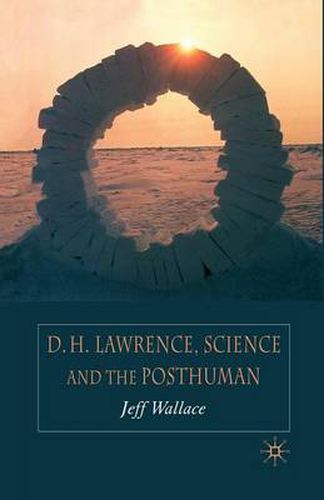Readings Newsletter
Become a Readings Member to make your shopping experience even easier.
Sign in or sign up for free!
You’re not far away from qualifying for FREE standard shipping within Australia
You’ve qualified for FREE standard shipping within Australia
The cart is loading…






This title is printed to order. This book may have been self-published. If so, we cannot guarantee the quality of the content. In the main most books will have gone through the editing process however some may not. We therefore suggest that you be aware of this before ordering this book. If in doubt check either the author or publisher’s details as we are unable to accept any returns unless they are faulty. Please contact us if you have any questions.
Why was D.H. Lawrence preoccupied with the enigma of the human as thinking matter? This first sustained study of Lawrence and science shows how ‘posthuman’ conceptions of a material kinship between humans, animals and machines can transform our understanding of Lawrence’s work and of its complex relationship with scientific epistemologies. Through detailed readings of evolutionary philosophy, and of the ‘new Bergsonism’ of Deleuze and others, Wallace provides a radical reappraisal of Lawrence in terms of an ‘antihumanist (or posthumanist) humanism’ (Hardt and Negri).
$9.00 standard shipping within Australia
FREE standard shipping within Australia for orders over $100.00
Express & International shipping calculated at checkout
This title is printed to order. This book may have been self-published. If so, we cannot guarantee the quality of the content. In the main most books will have gone through the editing process however some may not. We therefore suggest that you be aware of this before ordering this book. If in doubt check either the author or publisher’s details as we are unable to accept any returns unless they are faulty. Please contact us if you have any questions.
Why was D.H. Lawrence preoccupied with the enigma of the human as thinking matter? This first sustained study of Lawrence and science shows how ‘posthuman’ conceptions of a material kinship between humans, animals and machines can transform our understanding of Lawrence’s work and of its complex relationship with scientific epistemologies. Through detailed readings of evolutionary philosophy, and of the ‘new Bergsonism’ of Deleuze and others, Wallace provides a radical reappraisal of Lawrence in terms of an ‘antihumanist (or posthumanist) humanism’ (Hardt and Negri).